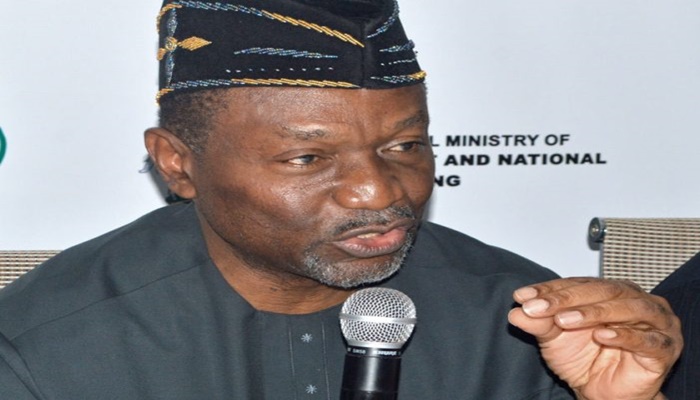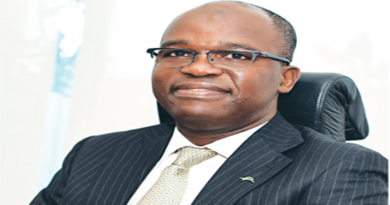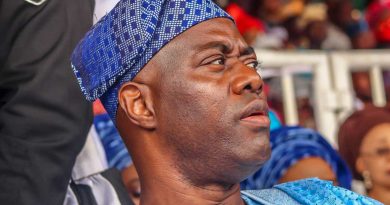IMF, NBS worry about Nigeria’s debt profile
- FG: Our debts are sustainable
There is a growing concern about the mounting debt profile of the Federal Government of Nigeria (FGN). Apart from the nation’s main opposing party, the Peoples’ Democratic Party (PDP), both the National Bureau of Statistics (NBS) and the International Monetary Fund (IMF) have been raising alarm on the issue.
In its report on ‘Nigerian Domestic and Foreign Debt Data’, the National Bureau of Statistics (NBS) said Nigeria’s foreign debt stood at $25.27 billion as at December 31, 2018.
At the ongoing World Bank/IMF 2019 Spring Meeting in Washington DC, USA, IMF has continued to sound a note of warning to the country on the issue of its debt profile.
It said that Nigeria’s Debt-to-GDP ratio is risky. IMF said that Nigeria’s Debt-to-GDP ratio though good but risky and cannot be guaranteed going forward.
Debt-GDP ratio compares the size of a country’s debt to its economy with a view to determining the sustainability of the debt profile as well as the vulnerability of the economy to creditors and repayment obligations.
The ratio which stood at 21.1 per cent early last year was projected to reach 25 per cent at full year 2018. But the Fund indicated that the range is already risky and cannot be guaranteed.
The Fund also harped on the use of the funds borrowed saying that the channeling of the fund to productive sectors is necessary to achieve significant impact on the economy.
Tobias Adrian, Financial Counsellor & Director of Monetary & Capital Markets Development of IMF, at a press briefing on “Global Financial Stability Report”, stated: “Nigeria’s borrowing to GDP is still low but we cannot guarantee the risk going forward given the global economic downturn. The prudent use of the money borrowed is significant to improving the economy.”
While commenting on the global economy, he stated that political and policy risks, such as an escalation of trade tensions or a no-deal Brexit, could affect market sentiment and lead to a spike in risk aversion.
He advised that amid rising downside risks to global growth, policymakers should aim to avoid a sharper economic slowdown, while keeping financial vulnerabilities in check.
“Policymakers should clearly communicate any reassessment of the monetary policy stance that reflects either changes in the economic outlook or risks surrounding the outlook. This will help avoid unnecessary swings in financial markets or unduly compressed market volatility.
“In countries with high or rising financial vulnerabilities, policymakers should proactively deploy prudential tools or expand their macro prudential toolkits where needed. These countries would benefit from activating or tightening broad-based macro prudential measures, such as countercyclical capital buffers, to increase the financial system’s resilience.
“Efforts should also focus on developing prudential tools to address rising corporate debt from nonbank financial intermediaries and maturity and liquidity mismatches in the nonbank sector.
“Regulators should also ensure that more comprehensive stress tests (that include macro-financial feedback effects) are conducted for banks and nonbank lenders.
“Emerging market economies should ensure resilience against foreign portfolio outflows by reducing excessive external liabilities, cutting reliance on short-term debt, and maintaining adequate fiscal and foreign exchange reserve buffers.”
On the future outlook, Adrian further stated: “Looking ahead, there is a risk that positive investor sentiment could deteriorate abruptly, leading to a sharp tightening of financial conditions.
“This will have a larger effect on economies with weaker fundamentals, greater financial vulnerabilities, and less policy space to respond to shocks.
“Possible triggers include the following: A sharper-than-expected growth slowdown could lead to tighter financial conditions as risk asset prices fall, reflecting a weaker outlook for corporate earnings, even as policies turn more accommodative.
“An unexpected shift to a less dovish outlook for monetary policy in advanced economies could trigger a reprising in markets, especially if investors realize that they have taken too benign a view on the monetary policy stance.”
However, The Nigerian government has said the country’s debt profile is sustainable; hence there is no reason for worry.
Udoma Udo Udoma, Minister of Budget and National Planning, stated this at the end of the Federal Executive Council (FEC) meeting on Wednesday.
In its report on ‘Nigerian Domestic and Foreign Debt Data’, the National Bureau of Statistics (NBS) said Nigeria’s foreign debt stood at $25.27billion as at December 31, 2018.
However, speaking with State House correspondents, Udoma said: “Our debts are sustainable. We do have a revenue challenge and we are focusing on that. Once the revenues come up, it will be obvious that we don’t have a debt problem at all.”
He said the Nigerian government is working on a number of initiatives to increase the country’s revenues.
“We are looking at initiatives to widen the tax pays. We are looking at initiatives to increase efficiency in collections. We are looking at a single window, which will help to increase efficiency, customs collections.
We are looking at many different ways to improve revenue,” the minister said.
Senator Shehu Sani said this on the issue on his twitter handle on Thursday: “When you borrow money from IMF, they will come and live in your house until you pay them; when you borrow money from China, they will turn you into a tenant in your house until you pay them”




